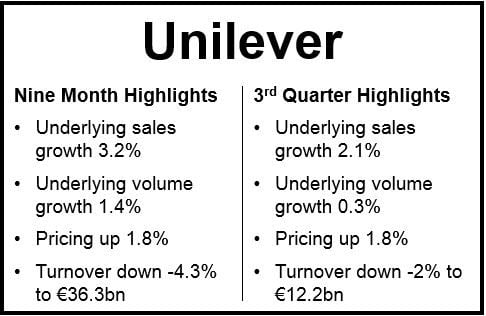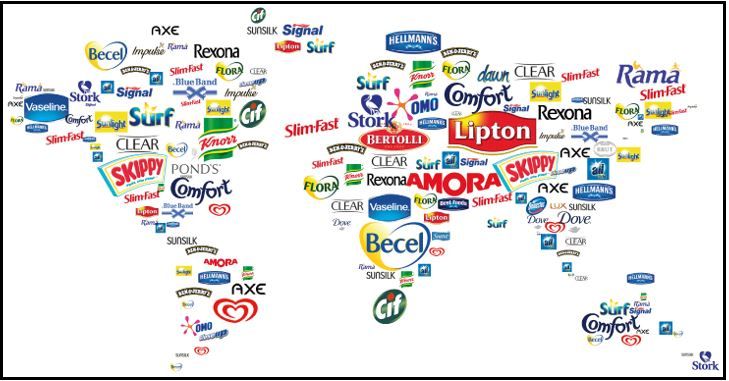Unilever’s third quarter sales growth was the weakest in nearly five years. The company promised investors that further cost cuts, and new and cheaper products would help push up profits.
Sales grew by 2.1%, and underlying volume rose by 0.3%. Turnover fell by -2% to €12.1 billion, including a -2.6% negative currency impact.
Emerging markets, which represent more than half of the Anglo–Dutch multinational consumer goods company’s sales, performed weakly, as did the Eurozone.
The London-based firm said sales in the UK were strong, but in most of the rest of the world consumers have been cutting back on spending.
In order to gain market share globally, Unilever says it is launching cheaper products, like mini-sized Cornetto ice-cream cones that sell for less than 1 lira in Turkey or €1 in Spain.
(Data Source: Unilever)
Paul Polman, Unilever’s CEO, pointed to the underlying sales growth of 3.2% in the first nine months of 2014, which he described as a positive performance in weakening markets.
He said market growth slowed in several emerging nations, particularly in China where the company also experienced significant trade de-stocking.
Prices fell in Europe, while poor summer weather in the region undermined sales. However, conditions in North America have started to improve.
Unilever has 400 brands which are sold in 190 countries (Photo: Unilever)
Mr. Polman said:
“Altogether, this resulted in reduced third quarter growth, but still ahead of our markets. We continued to invest behind our brands and innovations so that we are well-positioned for the long-term growth opportunities which remain fully intact. We expect market to remain tough for at least the remainder of the year. We have further accelerated our initiatives to remove unnecessary cost, simplify the business and ensure that Unilever is both agile and resilient.
He added that he is sure the company will achieve another year of profitable volume growth ahead of its markets.
Unilever has headquarters in London and Rotterdam. Its products include drinks, food, personal care products and cleaning agents. It is the third-biggest consumer goods company in the world, after Procter & Gamble and Nestlé. The company employs more than 174,000 workers globally.


